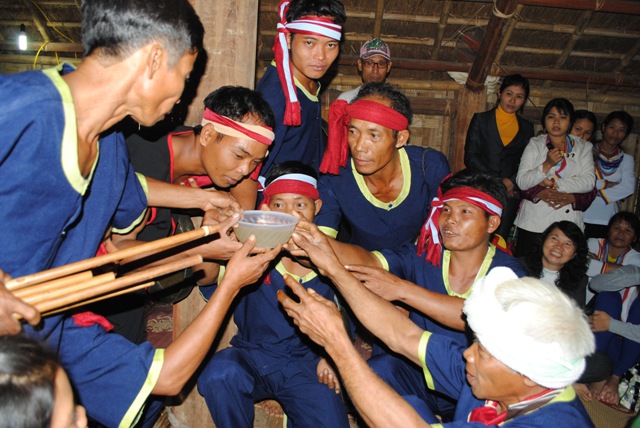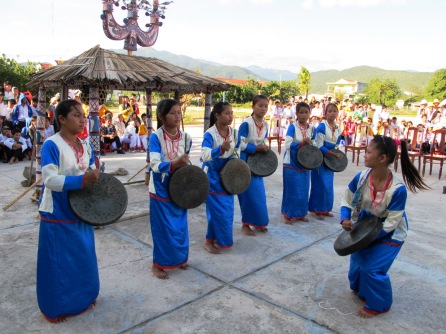 |
Raglai people live in deep valleys surrounded by high mountains. They use simple tools like axes, scythes, and digging sticks to do farm work and raise buffaloes, pigs, chickens, and ducks. They weave several types of rattan and bamboo containers, and have invented some unique musical instruments including the Chapi and the lithophone.
While other ethnic groups lived a nomadic life, burned forests to make terraced fields, and hunted wild animals, Raglai people lived on land cultivated by their ancestors. They didn’t hunt elephants and tigers. Raglai communities have abided by the law protecting forests and the environment.”
The long thatched houses of the Raglai are traditionally built on a mountain side, near a spring. Normally 3 or 4 generations live together in one house.
A traditional long house is protected by a strong fence with one or two gates. Every house has a bamboo water pipe carrying spring water to the house for daily use.
 |
 |
The Raglai have a rich spiritual life that includes epics, legends, fairy tales, and folk songs reflecting their customs, work, struggle against wild animals and natural disasters, and love for their land. The Raglai believe that after death the soul continues living in another world. People share their possessions with the dead - vases, gongs, dried gourds, and papooses, but break them and place them beside the grave.
In particular, the Raglai people enjoyed with a particular Raglai Ethnic Cultural Festival in Ninh Thuan. The festival is an opportunity to honor the cultural values of the nation Raglai, to promote the cultural values, the region's scenic Raglai with fellow travelers at home and abroad. The festival’s visitors can expect to enjoy Raglai art, fashion, and music performances, try out traditional folk games, sample a cooking competition’s entries, and deepen their understanding of Raglai culture through exhibitions and workshops.
 |
As well as honouring the unique culture of the Raglai ethnicity, the festival also promotes tourism and improves intercommunication among provinces where Raglai ethnic people reside.













COMMENTS